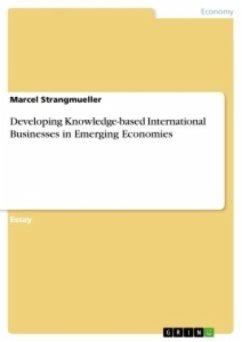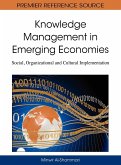Essay from the year 2018 in the subject Business economics - Miscellaneous, grade: 74, University of Edinburgh, language: English, abstract: For the last decade companies in emerging markets (EMs) have started to develop products, which are can compete with those produced by firms in advanced countries (ACs). This ability to compete did not come and many overnight and the new companies emerging have followed a way of advancing that led them from producing for a developed company to designing their own product and then finally creating their own brand. This essay will discuss the implications of the different stages in development of firms in emerging markets and will show on the example of Wipro, that while there is a standard way, but not the only way. The strategy used by Wipro involved skipping the first step of being an original equipment manufacturer (OEM) for others and starting their innovation from the get-go, being an original design manufacturer (ODM), progressing to being an own brand manufacturer (OBM) in the late 1990s early 2000s. After going through these phases, the company is now a recognised, global player and leads the industry in integrated business and business process solutions, as a strong consultancy and production partner.Further the paper will discuss how the company was influenced by the macro and meso environment in India and Bangalore. On the macro level, it will provide evidence how Wipro has benefitted from the higher spending on education by the Indian government in the last 30 years, how AC companies' outsourcing activities helped Wipro to catch up quickly and how the improvement of Intellectual Property Rights (IPRs) helps the innovation process of the firm further. Around the meso level influences on Wipro, the discussion will focus on the vacuum left by IBM leaving Bangalore and the clustering of tech companies and institutions that followed, as well as the entrepreneurship ecosystem, which is nurtured by the government's policies and support.
Hinweis: Dieser Artikel kann nur an eine deutsche Lieferadresse ausgeliefert werden.
Hinweis: Dieser Artikel kann nur an eine deutsche Lieferadresse ausgeliefert werden.








